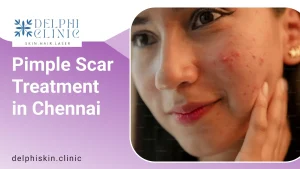Hair loss is a common affect for all people. Whether caused by genetics, hormonal changes, or underlying health conditions, the impact of hair loss can be significant, affecting self-esteem and overall well-being. We will delve into the medical management of hair loss, exploring various treatment options for addressing the common issue of hair loss, individuals in Chennai can discover a multitude of solutions, ranging from advanced hair treatment in Anna Nagar.
Whether seeking cutting-edge therapies or opting for neighborhood-specific remedies, individuals can embark on a comprehensive journey towards healthier and fuller hair. Hair treatment in Chennai provide a spectrum of choices for those navigating the challenges of hair loss.
What is hair loss?
Hair loss, or alopecia, is a condition where individuals experience a reduction in hair volume, typically on the scalp. It can result from various factors, including genetics, hormonal changes, medical conditions, or certain medications. Common types include male and female pattern baldness. Hair loss can be temporary or permanent, and treatments range from medications to surgical procedures, depending on the underlying cause.
Understanding the Causes of Hair Loss
Hair loss can result from various factors, including:
- Genetics: Hereditary factors play a significant role in pattern baldness.
- Hormonal Changes: Imbalances, as seen in pregnancy, childbirth, menopause, or conditions like polycystic ovary syndrome (PCOS), can contribute.
- Medical Conditions: Scalp infections, autoimmune diseases, and certain medical treatments such as chemotherapy can cause hair loss.
- Nutritional Deficiencies: Lack of essential nutrients like iron, zinc, and vitamins may impact hair health.
- Stress and Trauma: Physical or emotional stress can trigger temporary hair loss.
- Certain Medications: Some drugs may lead to hair shedding as a side effect.
- Tight Hairstyles and Excessive Styling: Pulling hair tightly or using harsh styling practices can cause damage.
- Age: Hair naturally thins with age, and the rate of growth may slow.
Medical management of hair loss involves the use of pharmaceutical interventions to address the identified causes. One common medication used for this purpose is oral finasteride. This medication inhibits the action of the enzyme 5 alpha reductase, reducing the levels of dihydrotestosterone (DHT) implicated in male pattern baldness. Another option is topical minoxidil, which promotes blood flow to the hair follicles, stimulating hair growth.
Topical Minoxidil Serum
Medical management of hair loss often involves the use of topical minoxidil serum, an over-the-counter solution applied directly to the scalp. Minoxidil, a vasodilator, widens blood vessels, although its precise mechanism in promoting hair growth is not fully understood. It is believed to enhance blood flow to hair follicles, stimulate follicle activity, and extend the growth phase of hair.
Benefits
- Hair Regrowth: Minoxidil is known to stimulate hair follicles, promoting hair regrowth in some individuals.
- Non-Invasive: The topical application makes it a non-invasive option for managing hair loss, suitable for various users.
- User-Friendly: Easy to incorporate into daily routines, requiring simple application to the scalp.
Risks
- Skin Irritation: Some users may experience scalp irritation, redness, or itching as a side effect.
- Initial Shedding: Temporary hair shedding may occur when treatment begins, but this is often part of the renewal process.
- Dependency: Continuous use is typically required to maintain results, and discontinuation may lead to the loss of benefits.
Oral Minoxidil Tablet
Oral minoxidil tablets are a systemic treatment option for hair loss. This medication, initially developed as an antihypertensive, has shown efficacy in promoting hair growth. Users may experience increased hair density and thickness. The medical management of hair loss involves the use of pharmacological interventions to either prevent further hair loss or stimulate hair regrowth. Medications like oral minoxidil, when prescribed by healthcare professionals, can play a role in this strategy.
Benefits
- Systemic Treatment: Oral minoxidil provides a systemic approach to hair loss, affecting hair growth across the entire scalp.
- Increased Hair Density: Some users experience increased hair density and thickness, leading to improved cosmetic outcomes.
- Non-Hormonal: Unlike some other hair loss treatments, oral minoxidil is not hormone-based.
- Convenience: Oral administration eliminates the need for topical application, making it a convenient option for some users.
Risks
- Hypotension: Oral minoxidil was initially developed as an antihypertensive medication, and its use may lead to low blood pressure as a side effect.
- Fluid Retention: Some users may experience fluid retention, leading to swelling or weight gain.
Oral finasteride tablet: (Medical Management of Hair Loss)
Medical management of hair loss involves the use of medications such as oral finasteride, which targets the hormone dihydrotestosterone (DHT) by inhibiting the enzyme 5-alpha reductase. By reducing DHT levels, oral finasteride is effective in treating conditions associated with DHT, such as benign prostatic hyperplasia (enlarged prostate) and male pattern baldness. It is particularly renowned for its role in slowing hair loss and promoting hair regrowth in individuals experiencing male pattern baldness.
Benefits
- DHT Inhibition: Finasteride inhibits the production of dihydrotestosterone (DHT), a hormone linked to hair loss, promoting hair regrowth.
- Prevention of Hair Loss: Finasteride is effective in preventing further hair loss and maintaining existing hair in many users.
- Long-Term Efficacy: When taken consistently, finasteride has demonstrated long-term efficacy in managing male pattern baldness.
Risks
- Initial Shedding: Some users may experience temporary shedding in the initial months of treatment before observing positive effects.
- Dependency: Continued use is necessary to maintain benefits, and discontinuation may result in the gradual return of hair loss.
Symptoms of Hair Loss
- Gradual Thinning: Noticeable reduction in hair volume over time.
- Bald Patches: Formation of round or oval bald spots on the scalp.
- Sudden Hair Loss: Rapid shedding, often linked to stress or medical events.
- Full-Body Hair Loss: Occurs in conditions like alopecia areata.
- Loosening of Hair: Hair easily comes out with gentle tugging.
- Scalp Itching or Discomfort: Sensations accompanying hair loss in certain cases.
- Changes in Hair Texture: Weakening, brittleness, or finer strands.
- Receding Hairline: Gradual movement of the hairline backward.
- Excessive Hair in Drain or Comb: Unusual amounts during grooming.
- Visible Thinning on Crown: Reduction in hair density on the top of the head.
Conclusion
The medical management of hair loss encompasses a range of effective hair treatment in Chennai, from medications like minoxidil and finasteride to innovative therapies like PRP and surgical interventions such as hair transplantation. For hair treatment in Anna Nagar, individuals have access to diverse options tailored to their specific needs. Understanding the causes of hair loss is the first step toward finding the most suitable treatment.




